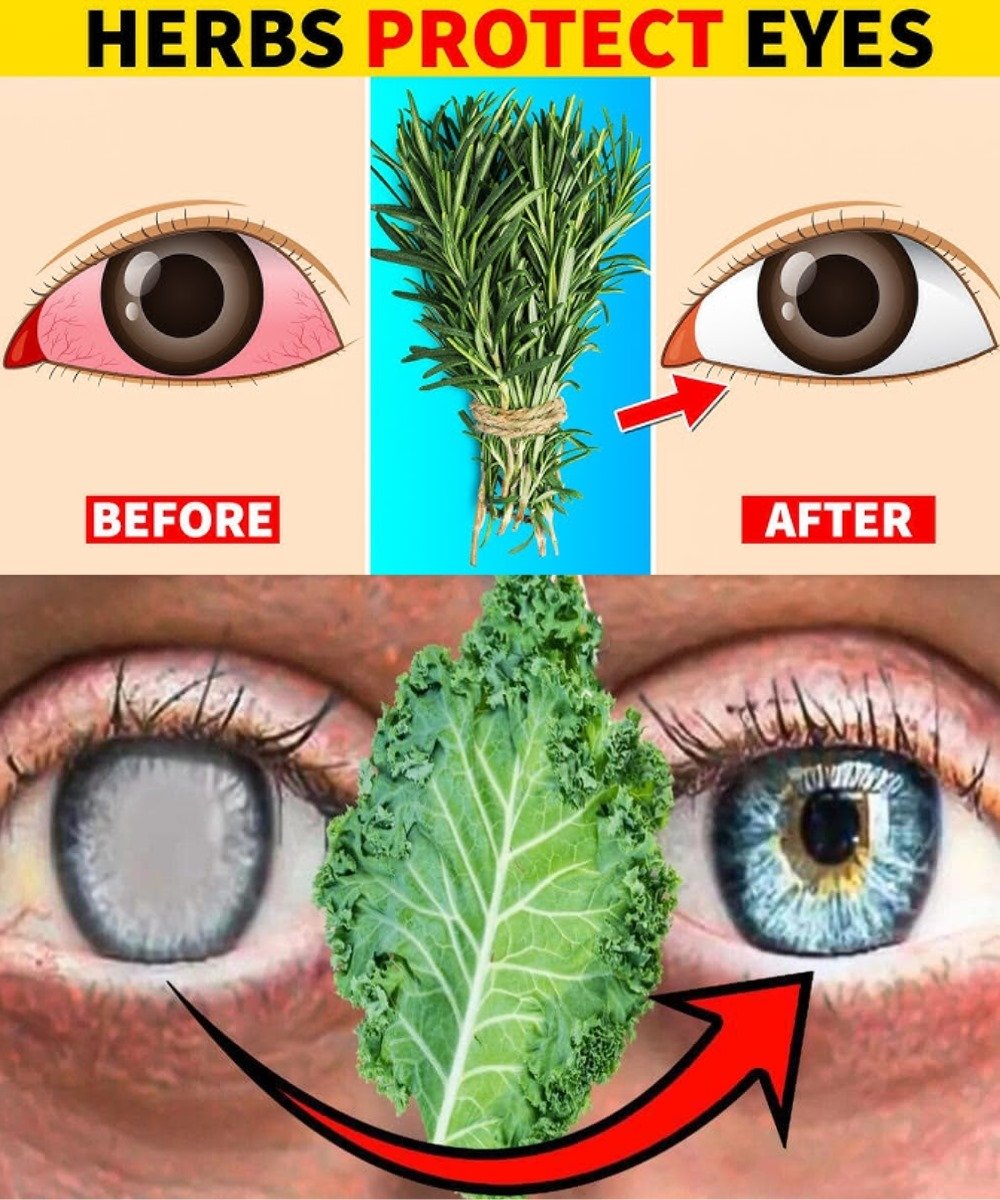ADVERTISEMENT
3. Aloe Vera Leaves for Eye Care
Aloe vera is a well-known plant that offers a range of health benefits, including for eye health. Aloe vera leaves contain vitamins, enzymes, and amino acids that are beneficial for maintaining the health of the eyes. Aloe vera has been traditionally used to treat eye infections, dry eyes, and irritated eyes, thanks to its soothing and healing properties.
Nutritional Benefits of Aloe Vera for Eye Health:
– Vitamin A: Aloe vera is a rich source of Vitamin A, which is necessary for the maintenance of healthy eyes and vision. It helps protect the cornea, improves night vision, and prevents the development of cataracts.
– Amino Acids: The amino acids present in aloe vera help promote tissue repair and regeneration in the eye area, making it an excellent choice for healing damaged or irritated eyes.
– Enzymes: Aloe vera contains various enzymes that help reduce inflammation and irritation, providing relief from conditions such as conjunctivitis and dry eyes.
How to Use Aloe Vera for Eye Health:
- Aloe Vera Gel for Soothing Eyes: Extract fresh aloe vera gel from the leaves and apply it gently to the area around your eyes. Aloe vera’s cooling properties can help reduce puffiness, swelling, and inflammation.
- Aloe Vera Juice: Drink a small amount of fresh aloe vera juice (about one tablespoon) every morning to nourish your body with essential vitamins and antioxidants that support eye health.
- Aloe Vera Compress: Soak a cotton pad in aloe vera juice or gel, then place it over your closed eyelids for 10-15 minutes. This can help soothe tired eyes and reduce the appearance of dark circles.
4. Neem Leaves (Azadirachta indica) for Eye Protection
Neem leaves are well known for their medicinal properties and have been used in Ayurvedic medicine for centuries. They contain compounds that can help protect the eyes from infections, reduce inflammation, and support overall eye health. Neem leaves are rich in antioxidants, essential oils, and Vitamin C, which all contribute to the health of the eyes.
Nutritional Benefits of Neem Leaves for Eye Health:
– Vitamin C: Neem leaves are rich in Vitamin C, which helps combat oxidative stress in the eyes and supports the health of blood vessels in the eye area.
– Antioxidants: Neem leaves contain flavonoids, which have potent antioxidant properties that help protect the eyes from free radicals and slow down the aging process of the eyes.
– Anti-Inflammatory Properties: Neem leaves have been shown to reduce inflammation, making them an excellent choice for soothing conditions such as conjunctivitis, eye infections, or irritation.
How to Use Neem Leaves for Eye Health:
- Neem Leaf Infusion: Boil neem leaves in water and use the infused water to wash your eyes. This can help reduce irritation and redness, especially in cases of conjunctivitis.
- Neem Leaf Powder: Neem leaf powder can be mixed with honey to create a soothing paste that can be applied around the eyes to reduce swelling and inflammation.
- Neem Tea: Drinking neem leaf tea is another way to support eye health. The antioxidants in neem help prevent oxidative damage and protect the eyes from degenerative conditions.
5. Spinach Leaves (Spinacia oleracea) for Better Vision
Spinach is not only a nutritious leafy green vegetable but also an excellent source of nutrients that promote healthy vision. Spinach contains high levels of lutein and zeaxanthin, two carotenoids that are particularly beneficial for eye health. These compounds are known to filter out harmful blue light and protect the retina from oxidative damage.
Nutritional Benefits of Spinach for Eye Health:
– Lutein and Zeaxanthin: These powerful antioxidants help filter harmful light and protect the retina from oxidative stress, which can lead to macular degeneration and cataracts.
– Vitamin A: Spinach is an excellent source of Vitamin A, which is essential for maintaining the health of the cornea and improving night vision.
– Vitamin C: This vitamin also helps reduce the risk of cataracts and supports the overall health of the blood vessels in the eyes.
How to Use Spinach Leaves for Eye Health:
- Spinach in Your Diet: Incorporate spinach into your meals by adding it to salads, smoothies, soups, or even omelets. Consuming spinach regularly will help provide your eyes with essential nutrients like lutein, zeaxanthin, and Vitamin A.
- Spinach and Carrot Juice: For a powerful eye-boosting drink, blend fresh spinach leaves with carrots and a bit of lemon juice. The combination of spinach and carrots provides an excellent source of Vitamin A and antioxidants to protect your vision.
- Spinach and Green Smoothies: Add spinach to your daily smoothies along with other leafy greens and fruits to give your body a nutrient-packed boost that benefits not only your eyes but your overall health.
—
Conclusion: Nourish Your Eyes with Nature’s Bounty
Our eyes are vital to experiencing the world around us, and maintaining good eye health should be a priority. While there are many commercial products available for eye care, nature provides us with a variety of leaves that are rich in nutrients and antioxidants, which can help improve eye health and prevent common eye conditions.
Incorporating **mint leaves, curry leaves, aloe vera leaves, neem leaves, and spinach leaves
** into your daily routine can have a significant impact on your vision. These leaves are not only rich in essential vitamins like Vitamin A, but they also offer additional benefits like anti-inflammatory, antioxidant, and healing properties that contribute to the health of your eyes.
Remember, good eye health is not just about using natural remedies but also includes other practices such as maintaining a balanced diet, protecting your eyes from harmful UV rays, reducing screen time, and having regular eye check-ups with an optometrist. By combining these efforts with the power of nature’s healing leaves, you can ensure that your eyes stay healthy and vibrant for years to come.
ADVERTISEMENT
